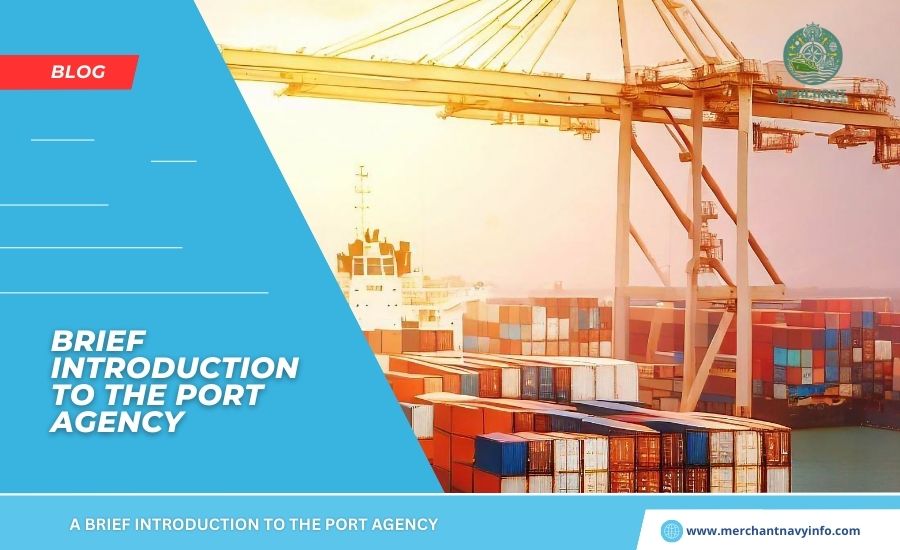
Shipping agents play a crucial role in the logistics industry, serving as key intermediaries in the movement of goods across borders and between different modes of transportation. They have a range of responsibilities that include managing cargo documentation, coordinating shipments, and navigating complex customs regulations. Shipping agents are essential to ensuring the smooth and efficient flow of goods from one place to another. In this article, we will explore the role of shipping agents. There are qualifications and skills required for success in this field. There are also numerous challenges and opportunities facing professionals in the shipping agent industry.
Introduction to Shipping Agents
Shipping agents are the unsung heroes of the logistics world, making sure your package gets from point A to point B without you having to stress about it. They act as the middlemen between you, the shipper, and the various entities involved in the transportation process.
Definition of a Shipping Agent
A shipping agent is like a logistical wizard who handles all the nitty-gritty details of transporting goods from one place to another. They work behind the scenes to ensure your cargo reaches its destination safely and that too, on time.
Role of Shipping Agents in the Supply Chain
Shipping agents play a crucial role in the supply chain by coordinating with carriers, ports, customs officials, and other stakeholders to facilitate the smooth movement of goods. They act as the glue that holds the entire logistics process together.
Responsibilities of a Shipping Agent
Being a shipping agent isn’t just about sitting behind a desk and pushing papers around. There are a bunch of responsibilities involved that keep the wheels of commerce turning smoothly.
Managing Cargo Documentation
Shipping agents are masters of paperwork, ensuring all the necessary documents are in order. These documents include bills of lading, invoices, and customs declarations. They make sure your goods don’t get held up at customs due to missing paperwork.
Coordinating Shipments and Logistics
From booking cargo space on ships or planes to arranging for transportation to and from ports, shipping agents are like conductors orchestrating a symphony of moving parts. They ensure your goods are in the right place at the right time.
Handling Customs Regulations and Clearances
Navigating the maze of customs regulations and clearance procedures can be a headache, but not for shipping agents. These guys are experts in dealing with customs officials which in turn ensures your goods cross borders smoothly.
Qualifications and Skills Required
Becoming a shipping agent requires a blend of education, skills, and a knack for problem-solving. It’s not just about knowing your way around a shipping container; it’s about understanding the intricacies of global trade.
Educational Background
While there’s no one-size-fits-all educational path to becoming a shipping agent, a background in logistics, supply chain management, business administration, or a related field is beneficial. Many shipping agents also undergo specialized training to further better their skills.
Key Skills for Success as a Shipping Agent
There are numerous skills required to ensure success in this field. Attention to detail and excellent communication skills are a few of the skills needed. The ability to work under pressure and a knack for problem-solving are also essential skills for shipping agents. Being organized and adaptable in the face of logistical challenges is also key to thriving in this industry.
Importance of Shipping Agents in the Logistics Industry
Shipping agents are the unsung heroes of the logistics industry, ensuring that global trade flows smoothly. Without their expertise and dedication, the movement of goods across borders would be a chaotic mess. So next time you receive a package, remember to tip your imaginary hat to the hardworking shipping agents behind the scenes.
How to Become a Shipping Agent
So, you’ve decided that being a shipping agent is your calling—rock on! But how does one actually become a shipping agent? It’s not like suddenly waking up as one after binge-watching “Pirates of the Caribbean” all night (though how cool would that be?). Here are the basics on how to chart a course towards becoming a shipping agent.
Educational and Training Requirements
Surprise, surprise—being a shipping agent requires a bit more than just a love of ships and a well-thumbed copy of “Moby Dick.” Most positions will require at least a high school diploma, with some roles calling for a bachelor’s degree in fields like logistics, supply chain management, or business administration. Taking courses in transportation, international trade, and economics can give you a leg up in the industry.
Gaining Practical Experience
It’s not all smooth sailing from the classroom to the high seas. Practical experience is key if you really want to make it as a shipping agent. Internships or entry-level positions at shipping companies, freight forwarders, or customs brokerage firms can help you navigate the waters of the industry. Learning the ropes firsthand will prepare you for the challenges and responsibilities of being a shipping agent.
Challenges Faced by Shipping Agents
Being a shipping agent isn’t all glamorous yacht parties and tropical ports of call. Like any job, there are challenges That you’ll have to bear with along the way. Things like dealing with customs regulations and international shipping laws will become the norm. Managing logistics and coordinating shipments, shipping agents must navigate choppy waters to ensure smooth sailing for their clients. There are also tight deadlines and unexpected delays to think about whenever you sit down in front of your desk.
Outro:
So there you have it—how to become a shipping agent, the challenges they face, and the future trends shaping the industry. Bon voyage, aspiring shipping agents! In all honesty, shipping agents play a vital role in facilitating global trade and logistics operations. With their expertise and dedication, they help businesses navigate the complexities of international shipping, ensuring that goods reach their destinations in a timely and efficient manner. As the logistics industry continues to evolve, shipping agents will remain essential partners in the supply chain, driving efficiency and reliability in the movement of goods across the world.










